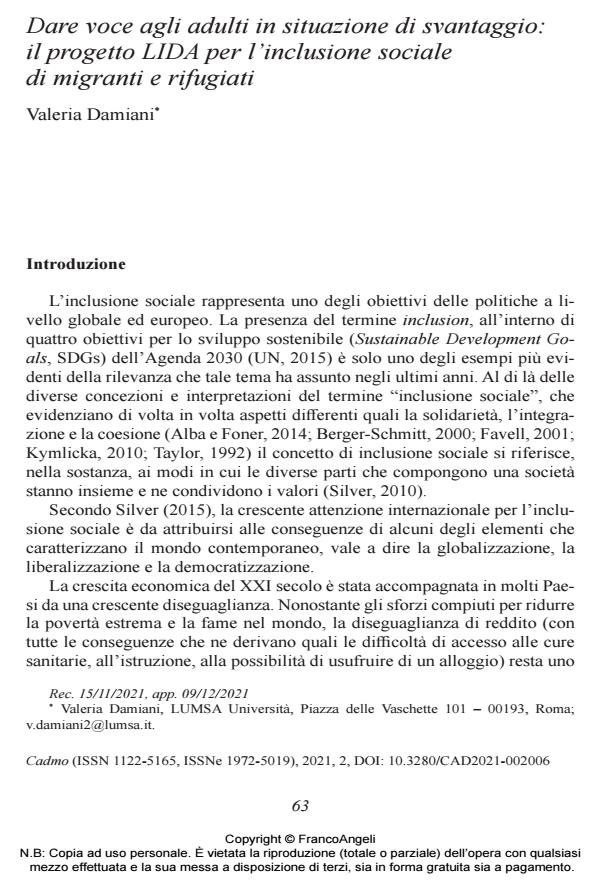Giving voice to vulnerable adults: the LIDA project for the social inclusion of migrants and refugees
Journal title CADMO
Author/s Valeria Damiani
Publishing Year 2022 Issue 2021/2
Language Italian Pages 13 P. 63-75 File size 201 KB
DOI 10.3280/CAD2021-002006
DOI is like a bar code for intellectual property: to have more infomation
click here
Below, you can see the article first page
If you want to buy this article in PDF format, you can do it, following the instructions to buy download credits

FrancoAngeli is member of Publishers International Linking Association, Inc (PILA), a not-for-profit association which run the CrossRef service enabling links to and from online scholarly content.
Social inclusion represents one of the main objectives of the policies at the European and global levels. This article presents the results of the first Intellectual Output (IO) of the LIDA project (Learning Inclusion in a Digital Age). LIDA is financed under the Erasmus+ program and focused on the promotion of social integration and active citizenship of migrants and refugees through digital technologies and digital storytelling. The IO allowed gathering insights on the Italian context for social inclusion from the point of view of relevant stakeholders working at the local and political levels. The concluding paragraph briefly traces the implications of this part of the IO for the subsequent phases of the project.
Keywords: migrants, refugees, European Union, social inclusion, digital technologies
- La narrazione digitale per l'inclusione sociale: primi risultati del progetto LIDA - Learning Inclusion in a Digital Age Gabriella Agrusti, Valeria Damiani, in CADMO 1/2023 pp.34
DOI: 10.3280/CAD2023-001004
Valeria Damiani, Dare voce agli adulti in situazione di svantaggio: il progetto LIDA per l’inclusione sociale di migranti e rifugiati in "CADMO" 2/2021, pp 63-75, DOI: 10.3280/CAD2021-002006